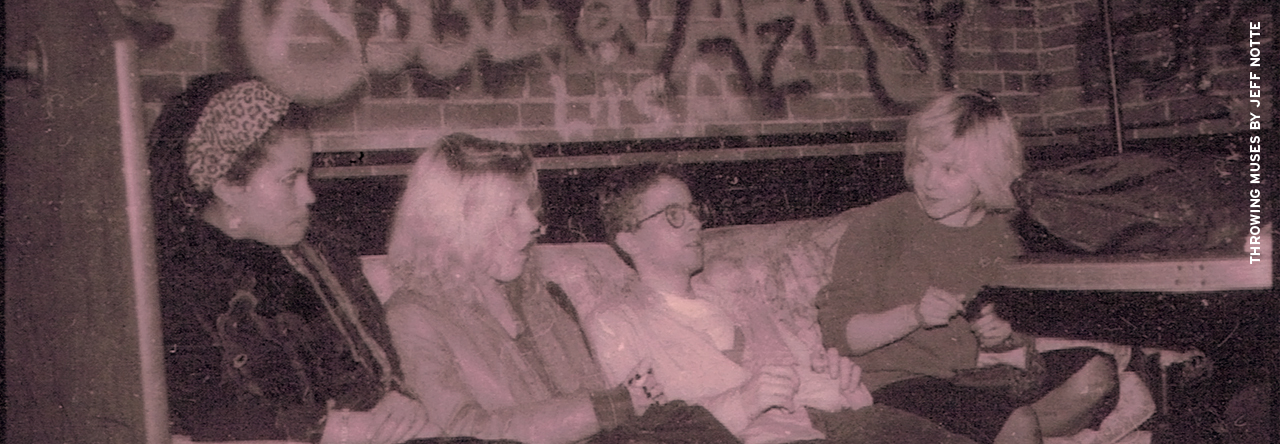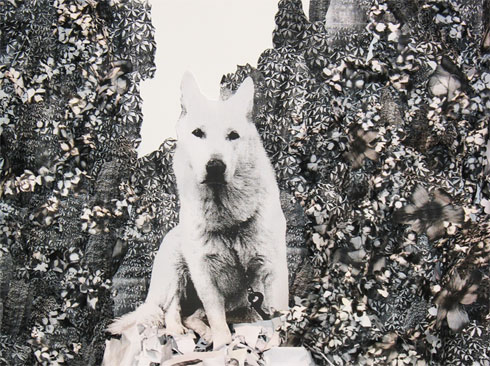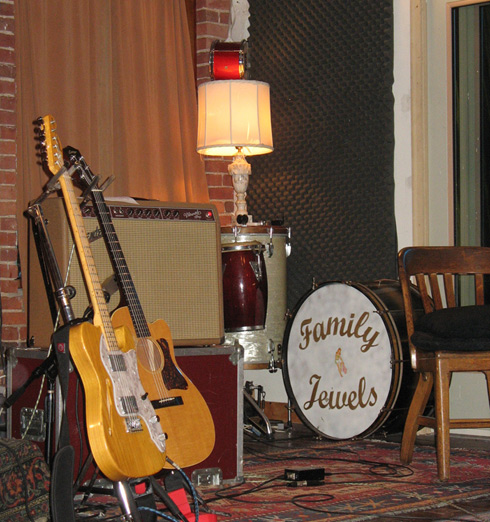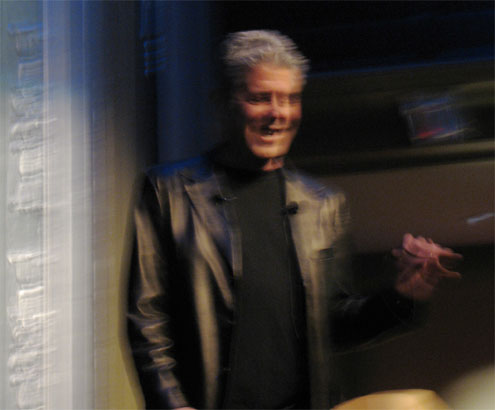
Anthony Bourdain
Johnson & Wales University
March 18, 2009
Chef, author and culinary adventurer Anthony Bourdain certainly relishes his role as the bad boy of the culinary world. Striding across JWU’s Xavier stage in head-to-toe black, he was greeted by thunderous applause from the sold-out crowd of more than 500 students. Warming to their enthusiasm, the hyperkinetic Bourdain proceeded with a largely off-the-cuff hour-long talk peppered with pithy, loose-limbed observations and rapid-fire, expletive-laden asides.
And yet, despite this penchant for brutal — if not downright slanderous — honesty and decidedly prickly exterior, the most surprising aspect of his talk was that it revealed him to be a practical and even reflective observer of food culture and human behavior.
Which is not to say that the bad boy persona is all for show. Bourdain definitely walks it like he talks it. Having gone through some very dark times (as unsparingly related in his autobiographical exposé,Kitchen Confidential), he emerged with the hard-won wisdom of someone who’s seen (and been through) it all. As he wrote in Spin, “We had fun for a while, then we all ended up dead or in a methadone program.”
When asked by a well-meaning student whether he thought of himself as a role model for young culinarians, Bourdain could not have been clearer: “Please God, no. Do not do as I do!” Pause. “Have you read the book?”
After the laughter died down, he continued: “Certainly my culinary career was not one that any of you would want to emulate. I’ve spent a lot of time …making some really crappy food at some soul-destroying places.”
Those “soul-destroying places” indoctrinated the young Bourdain into the dysfunctional but unshakable solidarity forged in the anarchic heat of the professional kitchen. Calling it the “last refuge of the misfit,” he noted that cooks are able to say things to each other that, in the real world, would result in a lifetime of litigation. “If being called a goldfish dropping bothers you, you don’t belong in the kitchen. You can’t mind injustice and absurdity.”
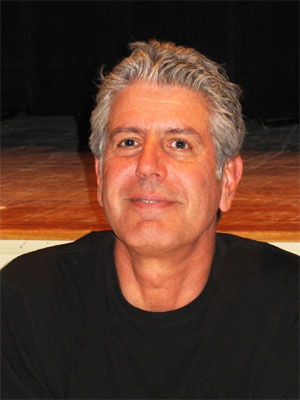 Bourdain also summarized the many schools of culinary leadership, most of them involving Gordon Ramsay-like levels of yelling, screaming and intimidation, all delivered with a drill sergeant’s colorful vocabulary and martial sense of justice. “They don’t call it ‘the Brigade’ for nothing.” While the people who didn’t belong were “shaken out like antibodies,” those who stayed behind had each other’s back, no matter what.
Bourdain also summarized the many schools of culinary leadership, most of them involving Gordon Ramsay-like levels of yelling, screaming and intimidation, all delivered with a drill sergeant’s colorful vocabulary and martial sense of justice. “They don’t call it ‘the Brigade’ for nothing.” While the people who didn’t belong were “shaken out like antibodies,” those who stayed behind had each other’s back, no matter what.
Surprisingly, though, Bourdain characterized the worst moments in the kitchen as “not when there’s chaos and screaming but dead silence,” therefore signifying some fuck-up on an unprecedented scale.
While the subjects of Bourdain’s withering ire are legendary (Rachel Ray and her telegenic ilk; his former bosses at the Food Network; Billy Joel), his praise is doled out sparingly enough that you know it’s genuine. He singled out David Chang, the innovative chef-proprietor of the growing Momofukuempire, as “one of the most important chefs out there.” “His food is devoid of bullshit, it’s unfussy, and [most of all], it’s fun.” He also praised Chang’s realistic sense of scale and lack of pretension, two qualities guaranteed to serve him (and like-minded chefs) in good stead in the new economy. “Bullshit will be the first to go,” he noted.
He also praised the Travel Channel’s unwavering support for his globe-trotting culinary adventure show, No Reservations, now in its sixth season. “I have so much creative freedom with the show. I decide where we go, I get to travel with good friends, and I decide which films we get to rip off.”
When asked about whether Julia Child was a formative influence, he turned uncharacteristically serious. “She is easily the most influential person in American cooking. Without her, we’d still be grilling ham steaks with pineapple rings and maraschino cherries. And she never once endorsed a single product.” Huge cheers.
Ultimately, he made it clear that food should be thought of as not simply an aesthetic but also a deeply sensual experience. “Chefs are in the pleasure business. The real artistry of cooking is turning something unlovely and tough into something new, that transformation.” He added, “If you don’t like sex or music you’re not going to cook well.”
His final words of advice to young cooks just starting out? “There’s no way to learn how to cook if you don’t venture outside your comfort zone. So travel, eat wildly, and fear not if it’s something strange.”
PHOTOS BY ANDREA FELDMAN

